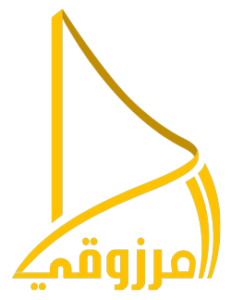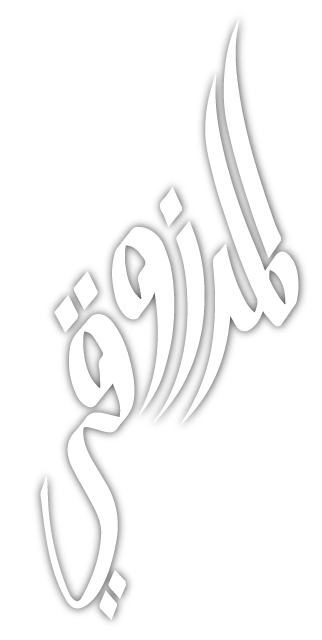Washington 4/8/2014
Ladies and Gentlemen,
Thank you for giving me this opportunity to talk about Tunisia, a country that has followed an exceptional path since January 2010, and that appears today as the only remaining beacon of hope for democracy and stability in the Arab world.
In a somber regional context, Tunisia comes across as the only reason to remain optimistic about the future of democracy in the Arab world.
Tunisia’s achievements are precious, but also very fragile. Today, we succeeded in accomplishing a key part of our democratic transition.
We adopted a new constitution in January 2014 that symbolizes a real consensus among various ideological components of the political scene. This progressive constitution truthfully expresses Tunisians’ aspirations in terms of human rights, gender equality, free speech and freedom of conscience.
We agreed on the appointment of a neutral government of technocrats that peacefully replaced the former Islamist led government.
We set up independent institutions .
We decided on the dates of the next parliamentary and presidential elections.
We contained the important terrorist threat without crushing individual liberties and free speech in the name of the ‘war on terror’.
Despite the difficult impact of the current changes on the economy, we managed to redress the growth from 1.7 in 2011 to 2.8 in 2013.
*
Tunisia has so far succeeded in building the foundation of a democratic future thanks to
Key structural factors.
Despite the wide variety of ways of life and views, our population is quite homogenous in terms of ethnic and religious backgrounds.
The educated middle class represents a significant and leading force of the society.
A long tradition of dialogue has defined Tunisian political history at least since the independence. The understanding between Islamist and secular political actors began well before 2011. Throughout the 1990’s, Islamists and secular activists have learned to work together, and to struggle together against torture and the confiscation of political rights. The Declaration of Tunis of December 2003, signed by key opposition parties in exile, and that called for the liberation of political prisoners, the voting of a new democratic constitution, the establishment of rule of law, and gender equality, played a central role in setting the condition for dialogue. This historical background is essential to understand why in 2011 most Tunisian political leaders were able to see one another as adversaries or allies, and not as existential enemies.
Contrary to what happened in other Arab countries, the military and the police remained outside political conflicts and showed an unflinching attachment to the rule of law and the institutions of the Republic.
Thanks to these positive ingredients, Tunisia managed to conduct a successful experiment of collective political learning.
But we have a lot of challenges to tackle
But none of this outcome was easily achieved. In the past 3 years, Tunisia has been confronted to very important challenges and dangers, both internally and regionally. In the context of uncertainty that followed the revolution, economic opportunities developed more slowly than the promptly acquired political freedoms.
To this real issue, the disfranchised youth has replied with two bad answers, by either escaping to Europe, or joining violent jihadist groups.
Counter-revolutionary forces have resolutely tried to exploit people’s fear and frustration in order to call for a return to an authoritarian type of leadership. In July 2013, these forces called for the suspension of the NCA work, and asked the military to take over. The instability at the borders of Tunisia and across the Arab world has increased the threats to our national security.
To all these predicaments, social, economic, political and security-related, Tunisian political parties and civil society managed to reply in a way that completely breaks with the fake solutions of the former regime.
The solution to extremism and violence does not lie in blind repression and crushing individual liberties. While we cannot justify the use of violence against Tunisian civilians or military under any circumstance, it is our responsibility to address the issue of the youth radicalization in a comprehensive way, and not simply to denounce it as a moral outrage. It is our responsibility to create a better social and economic environment, in which radicalization and emigration will not appear as appealing options any more.
The solution to revitalize the economy does not lie in blindly contracting debts with international funders, or encouraging unregulated capitalism. The construction of a healthy and growing economic environment has to answer to the revolutionary demands of equality and dignity. It requires a comprehensive project of development of the poorer regions as well as the wealthy ones, a project that is consistent with Tunisia’s environment and that does not rely solely on debts.
The solution to address the people’s fears of uncertainty does not lie in the return of an authoritarian leader, a savior, or a zaïm. The only way forward is to establish solid, democratic institutions, to consolidate the mechanism of alternance through elections, to create the conditions for the consolidation of a pluralistic society, that not only accepts but values plurality and diversity at all levels, political, ethnic, philosophical, religious…
But the democratic methods we chose take time. They sometimes seem more messy, chaotic and inconsistent than the methods of the good old authoritarian rule. That’s why the very people who took to the streets to break free from their chains can now sometimes have second thoughts, and be lured by the fallacious promises of the counter-revolutionary forces. Now more than ever, Tunisian politicians, deputies, members of civil society have to stay the course, and convince their fellow citizens that democracy is the only right answer to the dangers and problems we are confronted with.
No matter how deeply destabilizing the terrorist attacks, the threats of coups, and the social unrest have been, Tunisians have constantly strived to find political solutions to all these conflicts. They have not given in to the easy temptation of letting political disagreements degenerate into religious, or class hate. In the current context of agony in the Arab world, where the very idea of politics seem to have been destroyed by the explosion of inter-religious or inter-ethnic killings, Tunisia has learned, and has taught the rest of the Arab world, an invaluable lesson. It has shown that it is possible to reach compromise among opposing worldviews and ways of life, and to peacefully build democratic institutions. Such an outcome, though, can be reached only through a political process, and it requires patience, humility, unity, and determination. At a time when all the anti-political solutions of coups, civil war, terrorism, populism finally appear for what they are, fallacious and ineffective solutions to the expectations and demands of the Arab people, Tunisia has proven the importance and value of democratic politics.
Hopefully, the lessons learned in the past three years will help us face up the important challenges that are ahead of us. The battles that will take place until the parliamentary elections next October, and the presidential elections next November, will undoubtedly be very passionate. The shameful attack that occurred last July and that killed 14 of our soldiers proves that the forces that want the democratic transition to fail are still very determined. But Tunisians are also very determined and want this next phase of our democratic transition to succeed. It is our responsibility to lead this transition to its end, and not to give in to the intimidation attempts, threats, fears and obstacles. Now more than ever, while a large part of the Arab world seems to fall apart, Tunisia has only one option, to succeed. And it will.

